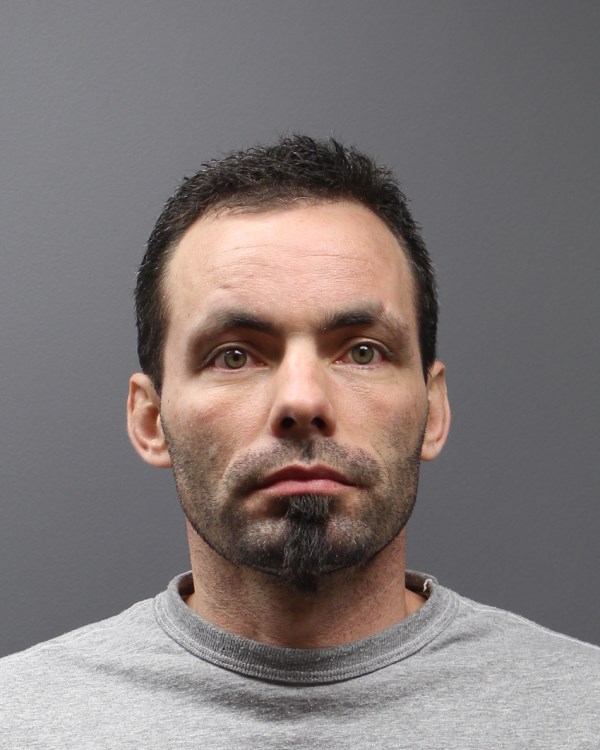by April Scheinoha
Reporter
The Minnesota Supreme Court has upheld the convictions of a Crookston man charged with the 2012 murder of a Thief River Falls woman.
In 2013, a Pennington County jury convicted Jedidiah Dean Troxel, now 35, of three felony counts of first degree murder while committing first degree criminal sexual conduct. He was convicted of killing Tanya Kazmierczak, 40. Troxel was sentenced to life in prison.
A fisherman found Kazmierczak’s partially nude body Aug. 26, 2012, near the Smiley Bridge in rural Thief River Falls. She had bled to death after being stabbed 37 times. Kazmierczak also suffered numerous abrasions and bruises. The two of them knew one another and had attended a party a night earlier in the city of Thief River Falls.
Troxel argued that he should have been allowed to introduce evidence of an alternative perpetrator. He also argued that the jury should have been allowed to contemplate a “lesser-included offense of second degree intentional murder.” Both of those matters had been addressed by then-Judge Donald Aandal around the time of the trial.
Troxel further argued that Aandal should have been disqualified from presiding over the trial. At the time, Aandal was in negotiations to serve as the Marshall County attorney, a position he now holds. Troxel argued that Aandal should have been disqualified since Marshall and Pennington counties share resources.
The Minnesota Supreme Court affirmed Troxel’s convictions in an opinion filed Wednesday, Feb. 17. The post-conviction court denied the appeal earlier.
Regarding evidence of an alternative perpetrator, Troxel sought to point the finger at Michael Wilson, who had been identified in open court. The opinion noted that Wilson admitted sending sexually explicit texts to Kazmierczak the morning of Aug. 25, 2012. Wilson told police that Kazmierczak texted him to pick her up at the party. After he arrived, she texted him to come inside the home for a drink. Wilson said he declined and waited outside for about an hour before returning home.
Aandal and later the Minnesota Supreme Court found Troxel hadn’t shown a connection between Wilson and the crime scene.
However, testimony and evidence linked Troxel to the crime. Troxel said Kazmierczak inappropriately touched him and suggested that they have oral sex. There had been testimony that party attendees played a game in which clothing was removed.
The opinion noted testimony from a witness who saw Kazmierczak and Troxel speaking outside after the party ended. Troxel said they hadn’t spoken at that time and Kazmierczak had left about five minutes before he did. He said she hadn’t been inside his car and they hadn’t had sex.
The opinion also referred to a resident’s testimony about seeing a Mitsubishi Eclipse parked near the Smiley Bridge at about 7:10 a.m. Aug. 25, 2012. Blood found on Troxel’s shirt and on the gear-shift of his Mitsubishi Eclipse matched Kazmierczak. “Police also found the victim’s fingerprint on the exterior passenger window of Troxel’s car,” the opinion noted.
A witness testified that Troxel was wearing black boots at the party. A Falls Liquor surveillance video showed him wearing the boots as well. Troxel said he wore red tennis shoes, not black boots, during the time frame in question. A footprint at the crime scene was similar to those left by Troxel’s boots on which damp mud could be found.
Regarding an instruction regarding a charge of second degree intentional murder, the Minnesota Supreme Court found that there was no evidence to suggest Troxel and Kazmierczak had consensual sex. The opinion referred to the appearance and location of Kazmierczak’s body. It indicated that the evidence suggested the murder and criminal sexual conduct occurred where she had been found. The opinion said, “Troxel’s counsel did not cross-examine this expert witness nor did the defense offer any evidence countering this expert testimony.” It further noted that Troxel didn’t dispute any of that evidence as part of the appeal.
With regard to Aandal presiding over the case, the opinion noted that Aandal hadn’t been employed by the Pennington County Attorney’s Office. It also noted that Judge Kurt Marben, then-chief justice of the Ninth District Court, earlier determined there was no evidence that Aandal had an interest in the case. The opinion further noted that Troxel didn’t provide evidence that Aandal wasn’t being neutral and objective during the case.
Three Minnesota Supreme Court justices dissented. The dissent noted that an unbiased layperson with knowledge of the case would question Aandal’s ability to be impartial. The dissent indicated that Aandal was negotiating to represent the state, which was arguing the case before him. However, it noted Troxel hadn’t proven that Aandal was biased and the dissent wasn’t saying that Aandal failed to be impartial. The dissent indicated that the conviction should have been reversed and a new trial should have been granted with a different presiding judge.

